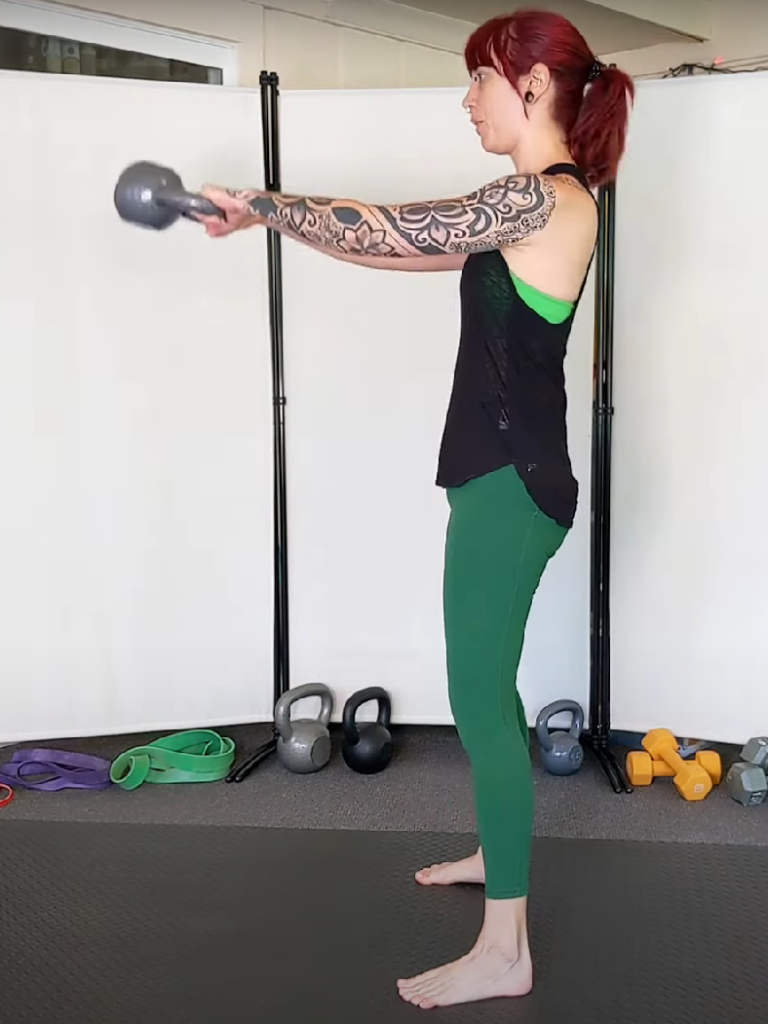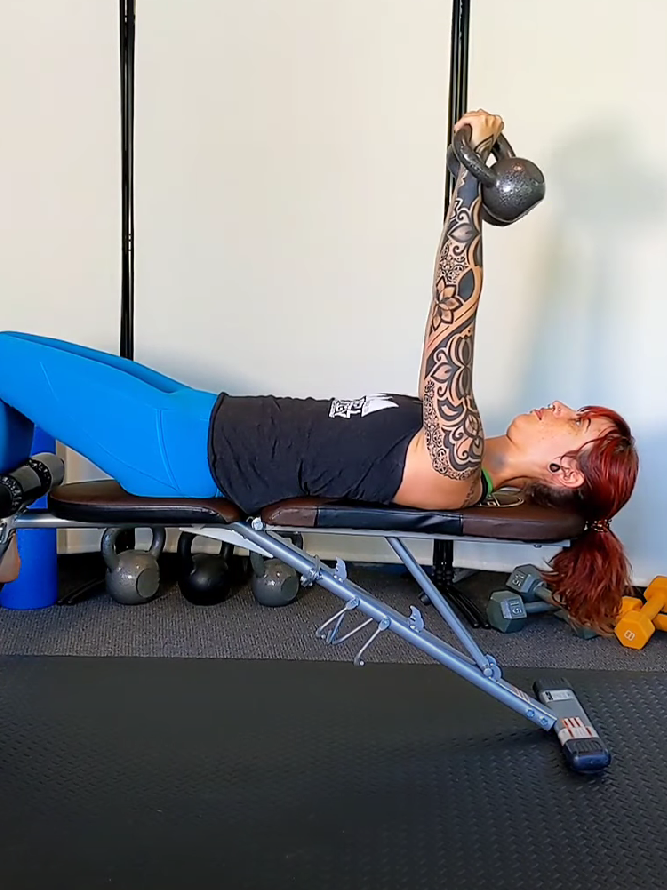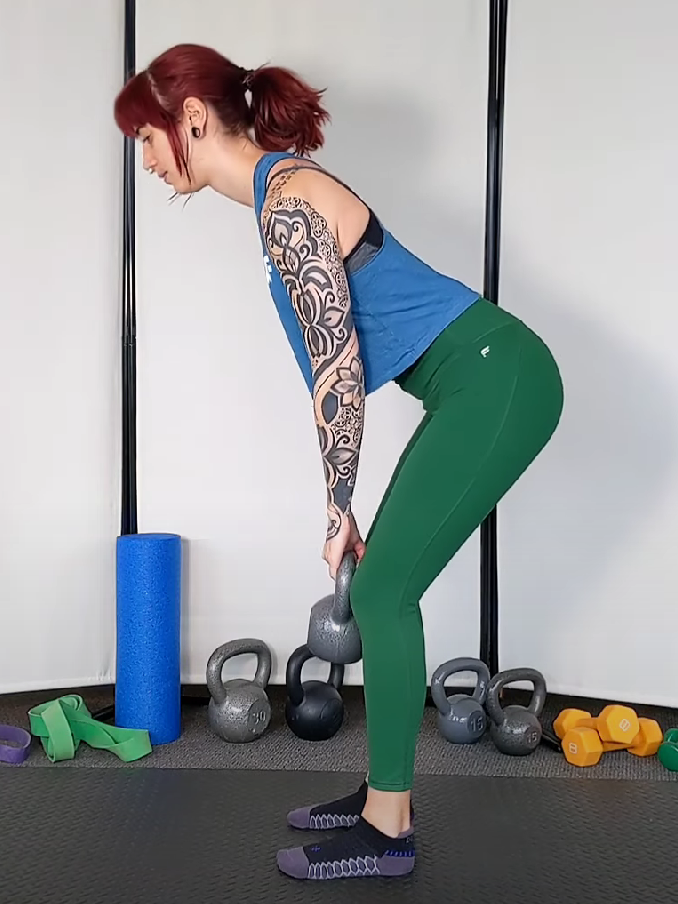“Should I lift weights?”
I’ve heard this question many times. I’m a little biased (hey, strength coach here), but my answer is yes! You should start lifting weights!
Thanks to weightlifting content on TV and social media, lots of people think that strength training is all about getting those big muscles. You’ve probably seen bodybuilders like Arnold Schwarzenegger or CrossFitters online doing handstand walks for time. While those big muscles and performative feats are possible with strength training (usually only when you’re specifically training for it though), there are many benefits from lifting weights that apply to your everyday life.
Your Healthspan
Have you ever heard of a healthspan? Here’s the basic definition:
Lifespan: how many years a person lives
Healthspan: how many years a person remains healthy during their lifespan
A big part of healthspan is quality of life- your well-being and the ability to do the things you want to do. There are MANY socioeconomic factors that go into healthspan and what “being healthy” means that are out of your control as a individual person, such as your genetics or your environment (we’ll save that deep dive for another article).
Movement/exercise is linked to having a longer healthspan and is something more likely to be in your own personal control, strength training in particular. As shown by many studies in the past few decades, doing weight-bearing exercise has a positive impact on health.
The general perception of strength training is that it’s advanced, intimidating, or even scary, which is why I emphasize in my content and coaching programs that strength training can adapt to every body, ability, and experience level. By figuring out how strength training fits into your life, you can embrace it as an important part of maintaining and even extending your healthspan.
In short: the benefits of strength training can have a MAJOR impact on your life and is absolutely worth putting in the effort to learn!
When can I expect to start seeing some of these benefits?

I used to mostly talk about the long-term benefits of strength training, but recently I’ve been focusing more on the short-term benefits. There are some benefits that appear almost immediately during or after a workout and have a positive impact on your day or week. Others take longer, such as weeks or months, to show up in a noticeable way. For some of the long-term benefits, you may not consciously notice the improvement over time, but you will notice the effects of a longer healthspan.
Before we get into each of the benefits, the last thing I want to say is that it’s never too late to get started with strength training. All of these benefits are just as important at age 70 as they are at age 20. So if you’re thinking you missed the boat and you shouldn’t bother with lifting weights, it’s not true!
Strength Training Benefits: Short-Term
These are results you’ll see immediately following workouts or notice within days of starting a workout plan. If you’re looking for ways to stay more consistent with lifting weights, these benefits are the ones to focus on. Our brains love instant gratification! When you feel workout resistance, remind yourself of these short-term benefits to stay motivated.
A Mood Boost
Strength training, and exercise in general, produces endorphins- the brain’s feel-good neurotransmitters! Many people report feeling better after even a small bit of exercise, like going for a short walk or stretching for a couple minutes. Knowing that strength training can improve your mood is a great way to get motivated to work out, even on a bad day when you don’t feel like it.
Stress Relief
If you’ve ever lifted weights on a day when you have a lot on your mind, you might have noticed that strength training can have stress-relieving effects. Lifting weights can help regulate your nervous system when you feel agitated, or even just give you the space to process your day. (Check further down the list for a related mid-term benefit if you’re chronically stressed.)
Better Focus and Productivity
You’re more productive after strength training! Movement increases the oxygen levels in your brain and gives you more focus and awareness, which allows you to me more productive when you return to your task. If you have a lot on your plate, it make seem counterintuitive to take time away from your schedule for a workout. The time a workout takes is worth it for higher quality work afterwards!
More Energy
Strength training creates more mitochondria (the ever-beloved powerhouse of the cell!), which need vital nutrients and oxygen to function. When you exercise, you’re creating more mitochondria and giving them more of the nutrients they need to create energy. From there, it tracks that more and healthier mitochondria = more daily energy for you.
Strength Training Benefits: Mid-Term

These mid-term results aren’t immediate, but you’ll start to notice the effects after a few weeks or months of regular strength training. The benefits under this list are, in my opinion, some of the most impactful. Even though these are mid-term benefits, they have long-term effects on your healthspan. These are the benefits my clients notice the most and that make them actually start to feel stronger.
Stronger Muscles
This might seem obvious, but stronger muscles is a big benefit of strength training! Did you know that you use 200 muscles (1/3 of the muscles in your body) to take a single step forward? Your muscles play a huge part in how your body functions, and having stronger muscles helps your body function at its best. It also means you’ll recover more quickly if you do get injured.
This muscle strength (along with stronger joints) can help you feel better performing activities of daily living. As your muscles get stronger, you’ll notice daily tasks feel easier, especially when you focus on functional, full-body exercises in your workous. These tasks include getting up off the ground, walking up stairs, and carrying groceries, and more. You may notice even more of a difference with more strenuous activities you don’t do as often, such as taking a long hike or shoveling inches of snow off your driveway.
Quick note: Muscle strength isn’t necessarily correlated with muscle size- you usually have to train for larger muscle size specifically. People don’t usually just “get bulky” without trying hard!
Stronger Joints
To anyone who complains about joint pain, I recommend strength training! Your joints are necessary for your body to function, along with your muscles to move and support them. Joints are usually the parts of the body where people experience pain, such as in knees, hips/lower back, and shoulders. Gaining strength helps support your joints and makes them more resilient as you move. The combination of muscle and joint strength helps prevent many different types of injuries.
If you perform exercises with a full of a range of motion, strength training can help improve your mobility. Mobility is how much space and ability a joint has to move. Having more mobility looks like being able to reach your arms fully overheard, spread your legs wider, and use more ankle movement. Strength training has even shown to be as effective as stretching for helping your flexibility/mobility and can help with chronic conditions such as arthritis.
Improved Mental Health
Aside from its immediate mood-boosting effects, strength training decreases chronic stress, anxiety, and depression over time. This study showed reduced severity and frequency of depressive symptoms with regular strength training. I’m definitely not one to say strength training is therapy or should be used in place of medicine, but I do believe it can be one important tool in your toolbox to lessen the effects of anxiety, and depression.
Better Sleep
Pretty much every type of exercise and movement helps you sleep better! Recent studies have been looking into strength training specifically as a way to improve sleep that’s even more effective than cardio.
More Body Trust
This benefit is less scientific and more about your experiences. There can be many reasons why someone would feel disconnected from their body, but a common one is buying into diet culture and toxic fitness culture (a term coined by Decolonizing Fitness). Both tell you that you need to stop listening to your body and push past any discomfort to get to the goals you’re supposed to want. By strength training in a way that helps you listen to your body and be intentional about your lifting, you can help yourself reconnect with your body and trust what it’s able to do. If this is something you struggle with, I recommend hiring a strength coach to help you on this journey.
This is also something that comes up after an injury- many people feel nervous about moving or will avoid moving in certain ways. Even after any pain is gone, the memory of the injury can hold you back from moving. By starting with small exercises and building over time, you can teach your body that it’s okay to move in those ways.
Increased Confidence
The feeling of lifting a weight that you couldn’t before is amazing! When you strength train, you overcome challenges, work towards a goal, learn new things, test your mindset, and hold yourself accountable to your plan. All this teaches your brain that you can do hard things! Because you’ve demonstrated to yourself what you’re capable of, that confidence can show up in other parts of your life as you encounter challenges.
When you feel more confident, especially with your body movement, you’re more likely to try something new. This gives you the chance to explore activities you may have always wanted to do. You can find new people to connect with, discover your new favorite hobby, and more!
Strength Training Benefits: Long-Term
These are long-term benefits you’ll start to notice the effects of after a while of regular strength training. For some of them, you may not even consciously feel the difference. I don’t tell you that to discourage you, but more to help you recognize what’s happening in the background. Even as you’re noticing the short- and mid-term benefits of strength training, these long-term benefits are working behind the scenes to extend your healthspan.
Stronger Bones
Studies have shown that strength training not only stops the progression of osteopenia and osteoporosis, but even reverses the effects! Your bones lose density as you age, making you more susceptible to bone fractures and breaks. Weight bearing exercises, which put good stress on your body to help it get stronger, trigger the osteoblasts in your bones to create new bone.

Brain Health
Your brain stays healthier with regular strength training to due improved blood circulation, less inflammation, and an increase of brain-derived neurotrophic fact (BDNF). Studies done with older adults show that participants do better with cognitive function (processing speed, memory, etc.) after strength training. On top of that, learning new ways of moving and coordinating different body parts to work together is a great way to keep your brain working its best!
Heart Health
Strength training has a huge impact on heart health! This study showed that strength strength training can reduce your risk of having a heart attack or stroke by 40-70%. 40-70%???? Those are huge results. Other studies have shown that strength training is as effective, if not better than, cardio for a healthier heart. Strength training also increases your circulation and decreases your blood pressure and cholesterol.
Blood Sugar
Muscle tissue absorbs blood sugar (glucose). The more muscle mass you have, the more glucose your body is able to absorb. Your body uses that glucose as fuel and prevents excess glucose in your system. Exercise also increases your insulin sensitivity (this can be a short-term/immediate benefit too!), so your cells are able to more effectively use glucose for energy.
More Balance and Body Awareness
Because of the coordination strength training takes, you end up having better balance, body awareness (what’s happening with your body), and proprioception (what’s happening around your body). This helps you have better coordination while moving in other parts of your life, and can prevent injuries such as falls. With increased balance and body awareness, you’re also able to react more quickly and move in different situations.
Now what?
Hopefully after these 16 benefits, your answer to “Should I lift weights?” is a resounding “YES!”
Now that you know all these benefits, you might be asking yourself how to get started with strength training. The key to making it happen is figuring out a plan that works for you- your body, your schedule, and your goals. Taking some time and going into it with a plan will be much more successful than randomly throwing exercises together into a workout.
I also want to point out that getting all these benefits doesn’t mean spending hours upon hours in a gym every week. You can do longer gym workouts, but you could also choose to do shorter 10-20 minute strength workouts at home on a regular basis. Whatever you end up choosing, start small and build over time- you don’t have to go all in and start working out five days a week tomorrow!
If you’re looking for an easy way to get started that’s planned out for you, try Stronger in 40! It’s a workout that tells you what to do and when but still gives you the space to choose what’s best for your body. You can complete a workout in the time it takes to watch one single episode of the tv show you’re currently binging.
Sarah Siertle
Hey! I'm Sarah!
I'm an inclusive strength & movement coach who helps people get hella strong so they can have fun and live their lives in full color!
My coaching is beginner-friendly, movement-based, and size-inclusive. I believe in coaching that is kind, not shaming or judgmental as so many fitness experiences are.
If you're ready to start your strength journey, you can check out your training options or get started with a free workout!
Comments